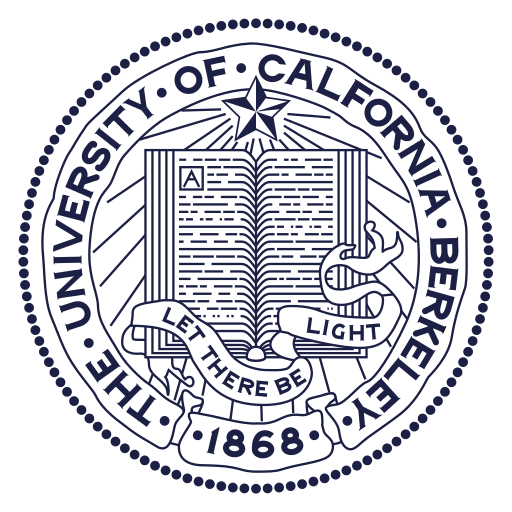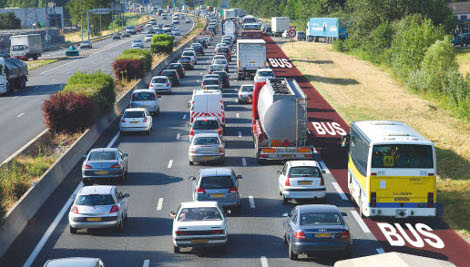"COMFORT" is an Associate Team between INRIA project-team NeCS and the Berkeley University project PATH, funded from 2014 to 2016.
2014 Results
During last year's stay
of Giovanni De Nunzio (Ph.D. student at
NeCS team) and Prof. Carlos Canudas de Wit
(director of NeCS team) at UC Berkeley, a
scientific collaboration was established
to deal with the problem of urban
eco-driving.
Dr.
Gomes’ work on the optimization of road
arterial bandwidth (i.e. maximization
of the time interval in which the vehicles
can travel the length of the
arterial without having to stop) has been
extended. The
proposed idea is to use both the offsets
and the variable speed limits in each
segment as control variables in order to
maximize bandwidth. The problem has been
enriched by considering a two-way
scenario (i.e. an inbound and an outbound
signalized corridor with constraints
on the offsets of the two traveling
directions to replicate the realistic case
of presence of multiple phases at each
intersection), and by extending the
objective function of the optimization.
Now the goal is not only to maximize bandwidth, but also minimize energy consumption and travel time. The challenge is to define everything as a function of the desired unknowns of the problem while keeping the linear structure of the problem formulation. The considered energy term takes into account and penalizes the energy consumption induced by the variable-speed-limits control. In other words, even though varying the speeds can help to catch more timely the next green windows, one wants to discourage frequent changes in speed limits between a segment and the next one, both for driver’s comfort and more importantly to reduce additional energy consumption in the speed changes. At the same time trivial solutions, such as equal but too low speeds, are discouraged by the term minimizing the travel time
The stay in Berkely ended in December 2014
 Menu
Menu
 Contact
Contact
Carlos Canudas De Wit
Director of Research at the CNRS
GIPSA-Lab, UMR CNRS 5216
BP. 46, F-38402, Saint Martin d'Hères, France
Tel: + 33.(0)4.76.82.63.80 (campus-Grenoble)
Tel: + 33.(0)4.76.61.53.64 (INRIA-Montbonnot)
Fax: + 33.(0)4.7682.6388
Cellphone: + 33 (0)6.85.73.70.16
carlos.canudas-de-wit@gipsa-lab.inpg.fr
 Members area
Members area
- Administrator
(Hassen Fourati)
- Restricted access to members only


